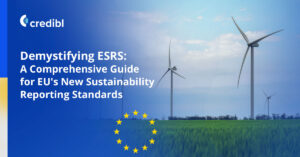The investing world is witnessing a seismic shift. Did you know that 63% of investors avoid investing in companies with poor ESG practices, even if they are financially attractive (HSBC, 2021)? As the wave of sustainable investing rises, it’s reshaping how investors make decisions. This blog post aims to decode the pivotal role ESG factors play in these decisions.
The Various Facets of ESG Investment Strategies
ESG investment strategies are as diverse as the factors they encompass. Some investors pursue impact investing, targeting investments that have a measurable positive impact on society or the environment. Others opt for socially responsible investing, which promotes corporate practices that align with values such as human rights, labor standards, and climate change mitigation. Thematic investing focuses on sectors or themes associated with sustainability goals, like renewable energy technologies or gender equality initiatives.
These strategies underscore the nuanced ways in which ESG considerations can shape investment decisions, and each of them can help investors identify opportunities to create long-term portfolio value.
ESG as a Risk Management and Performance Indicator
ESG data is becoming an essential tool for comparing company performance and managing risk. By assessing a company’s approach to environmental impacts, social responsibility programs, executive compensation, and other governance issues, investors can gauge how well it manages these risks and how these risks might impact returns over time.
Take the case of Nestle SA, which has halved its water consumption since 2010 due to a comprehensive conservation program. This initiative was not just about cost savings from reducing waste; it also aimed to enhance Nestle’s image among consumers who prioritize ethical sourcing. This example underlines how ESG factors can contribute to a company’s long-term prosperity and portfolio value.
Harnessing ESG Data for Informed Investment Decisions
The analysis of ESG data offers a new dimension for investors to navigate the investment landscape. It presents a quantitative approach to measure the sustainability and ethical impacts of an investment in a company.
Here are some key ESG metrics investors often consider:
- Carbon Footprint: This metric quantifies the total greenhouse gas emissions a company is responsible for. It gives investors insights into a company’s exposure to climate change risks and potential future regulatory costs.
Investor Perspective: Companies with a smaller carbon footprint are often future-proofed against stringent environmental regulations and carbon pricing, thereby minimizing financial risks. - Water Usage: This showcases how efficiently a company uses water in its operations. It indicates the company’s vulnerability to water scarcity and its operational efficiency.
Investor Perspective: Effective water management can be a sign of a well-run company that takes its environmental responsibilities seriously, reducing potential regulatory risks. - Board Diversity: Diversity indices provide a measure of variety in a company’s board members. This reflects the company’s governance quality and its commitment to inclusivity.
Investor Perspective: A diverse board can offer a broader range of perspectives, potentially leading to better decision-making and risk management. Companies that prioritize diversity may be more adaptable and innovative, which can drive long-term growth. - Employee Turnover: High turnover rates can signal potential issues with a company’s social practices and workplace culture.
Investor Perspective: A lower employee turnover rate often signals a healthy corporate culture and effective management. Such companies may have higher employee productivity and morale, potentially driving better financial performance.
These ESG metrics provide a more holistic view of a company’s operations, risks, and potential for long-term value creation to the investors. By leveraging this data, investors can make more informed decisions that align with their financial and sustainability goals.
Conclusion
Companies must weave ESG into the fabric of their operations and strategies, and investors need to understand ESG’s role in identifying long-term portfolio value. Platforms like Credible are enabling this transformation, ensuring a future where investment decisions align with the collective goals of financial prosperity, environmental stewardship, and social responsibility.
Credible allows businesses to collect, validate, and manage ESG data, thereby providing investors with the reliable, high-quality information they need to make informed decisions. By enabling investors to access comprehensive and verifiable ESG data, platforms like Credible play a critical role in integrating ESG considerations into investment decision-making processes.
As we decode the impact of ESG on investor decisions, we can clearly see a future where sustainability is not just a trend, but a cornerstone of smart investing.







